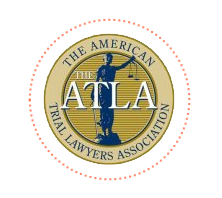Dangers on the Oil Field
Texas accounts for 40% of oil field deaths, according to the Insurance Journal.
Oil fields have long been associated with high risk environments, where death could be just one small mistake away. What things contribute to this atmosphere? How is working at an oil field so much more dangerous than working at, say, McDonald's?
Vehicle crashes. Oil fields are often found in rural areas far from cities. As such, the equipment used to extract oil must be transported to these sites. This equipment isn't known for being small and light, so vehicle wrecks while transporting them can be absolutely devastating. Indeed, vehicle-related accidents is the leading cause of fatalities for oil field workers today.
Struck-By/Caught-In/Caught-Between. Even if the equipment is safely transported to the site, there are risks to simply working in their presence. Employees must always be on the lookout for vehicles or equipment in motion or even falling objects. One simple misstep could lead to serious injury or even death.
Explosions and Fires. Flammable substances and gases are everywhere on an oil field. Trucks, equipment, and oil wells all leak out various vapors, including hydrogen sulfide. To make matters worse, ignition is just as prevalent. Some sources of ignition include cigarettes, welding tools, and even lightning. With fuel so readily available nearby, fires and explosions are bound to happen, and the aftermath can be nothing short of catastrophic.
Falls. In order to perform their duty, some employees must climb high into the sky to reach platforms or equipment. While these workers can take precautions for their ascent, disaster is one slip away.
High Pressure Equipment. Some oil field equipment come installed with high-pressure tubing lines. Over time, the interior of these tubes can decay and erode, which can lead to leaks or line bursts. Both events threaten the safety of nearby workers and can cause serious injury.
Electrical Hazards. Many pieces of oil field equipment operate with high voltages of electricity. If these are not installed and managed correctly, employees face the risk of electrocution.
These are only some of the many risks that oil field workers face every day. It is the responsibility of the employer to provide workers a safe environment to operate in. If you or someone you know are a victim of oil field related accidents, contact Colley & Colley as soon as you can.















